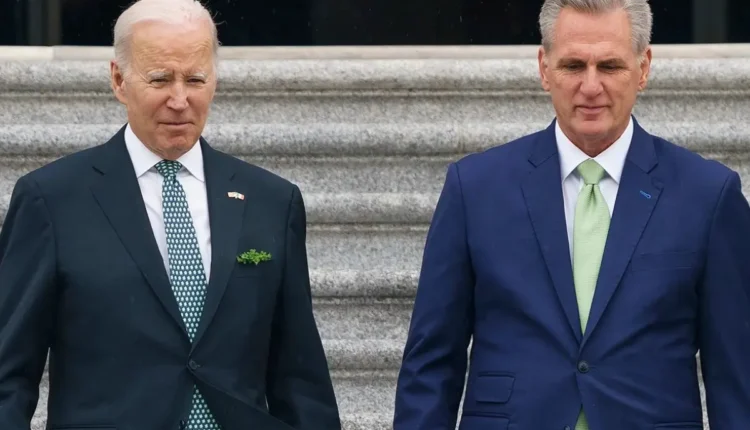Debt Ceiling Agreement: Political Compromise or Economic Time Bomb?
In a surprising turn of events, US President Joe Biden has expressed his support for a preliminary agreement on increasing the nation’s already sky-high $31.4 trillion debt ceiling. Biden’s unlikely alliance with House Minority Leader Kevin McCarthy is raising eyebrows and dividing Americans at a time when tensions are escalating and the economic clock is ticking.
While the president hails this deal as “an important step forward,” critics argue that it merely delays an inevitable economic catastrophe. The idea of both parties working together is a good thing, but at what cost? The concept of raising the debt ceiling may be a temporary solution, but it does little to address the underlying issue of the nation’s crippling deficit.
The president’s comments on avoiding defaulting on our debt are met with mixed reactions. Shouldn’t the focus be on tackling the root problem rather than prolonging the agony? The idea of giving credit to both parties for “likely” getting a deal done appears premature and dismissive of the concerns shared by many Americans.
The question remains: how can we reconcile the urgent need to reduce our deficit while avoiding the drastic consequences of a collapsing economy? Critics argue that the strategy of increasing revenue and decreasing expenses is easier said than done.
As Americans face increasing economic uncertainty, the divisive nature of this issue threatens to tear us apart. Instead of engaging in political posturing, shouldn’t our leaders focus on the long-term welfare of our children?

